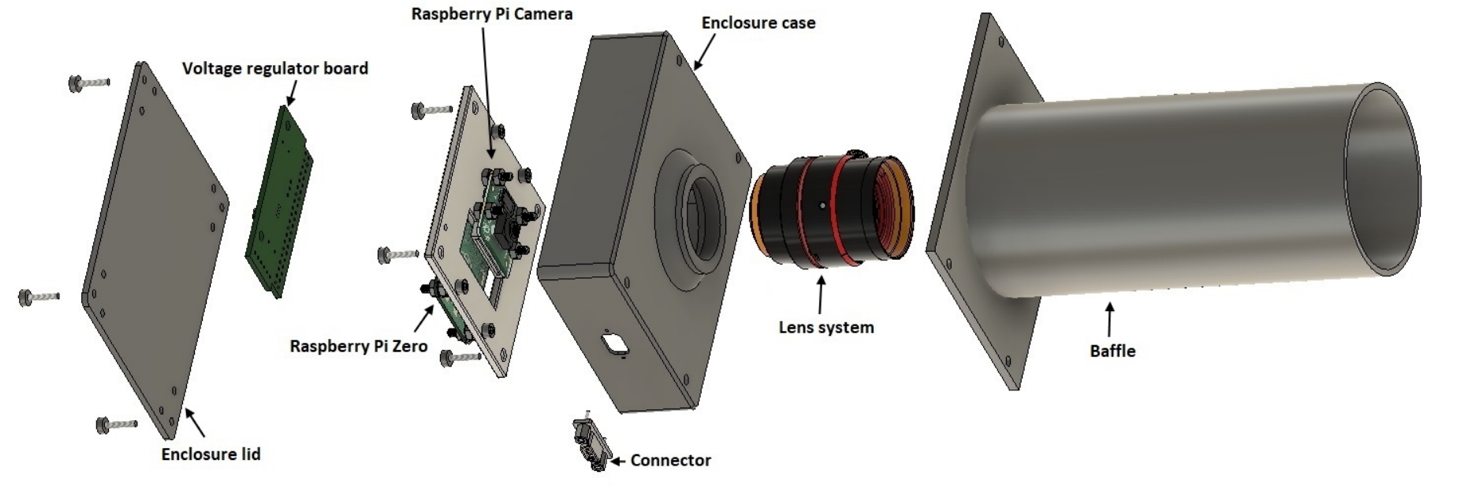A new low-cost star sensor developed by astronomers from off-the-shelf components can help small CubeSat class satellite missions find their orientation in space. This instrument, 'Starberry-Sense,' is ready for launch on the PS4-Orbital Platform by ISRO and can be used for CubeSats and other small satellite missions in the future.
Any satellite needs to know where it is pointed in space, and the instrument used for this purpose is called a star sensor. The position of stars in the sky is fixed relative to each other and can be used as a stable reference frame to calculate the orientation of a satellite in orbit. This is done by correctly identifying the stars in the sky towards which the star sensor is pointed. The star sensor is essentially a celestial compass.
In recent years CubeSats and small satellite missions have gained huge popularity. These missions utilize commercially available components for their design and development, but the typical cost of a commercially available star sensor often exceeds the total budget for a CubeSat.
Researchers at the Indian Institute of Astrophysics (IIA) and their collaborators have now developed a star sensor for astronomy and small satellite CubeSat class missions. Based on commercial/off-the-shelf (COTS) components, this star sensor costs less than 10% of those available in the market. The brain of the instrument is a single-board Linux computer called Raspberry Pi, which is widely used among electronics hobby enthusiasts.
“We coupled some highly optimized algorithms with a raspberry Pi and turned it into a potent star sensor, named “StarBerry-Sense,” said Bharat Chandra, a Ph.D. scholar at IIA and the first author of the research about this work which was published in the Journal of Astronomical Telescopes, Instruments, and Systems. “We could demonstrate that instruments built from easily available components can be qualified for space,” he added.
The main advantage of the system is the low cost and the short development cycle with COTS components which are readily available. “Our modular design allows for quick and easy customization for various requirements. For e.g., even though StarBerry-Sense is meant for space-based applications, a modified version will be interfaced with the Major Atmospheric Cherenkov Experiment (MACE), located at the Indian Astronomical Observatory (IAO), Hanle, Ladakh”, said Binukumar Nair, a co-author of the study.
The star sensor has successfully undergone the vibration and thermal vacuum test that qualifies it for a space launch and operations, and these tests were conducted in-house at the environmental test facility located at the CREST Campus of IIA in Hosakote.
The system was developed around the very popular Raspberry Pi Zero (a 1 GHz single-board computer, smaller than a credit card) as the main processing unit and its camera module. The entire setup is housed inside a protective aerospace-grade aluminum enclosure. StarBerry-Sense captures sky images and identifies the stars in the field by comparing their location with an onboard catalog of bright stars. The information is then used to identify which part of the sky the star sensor is looking at, helping locate the orientation of the satellite.
The study is authored by Bharat Chandra, Student, Integrated MTech-PhD in Astronomical Instrumentation, IIA, Mayuresh Sarpotdar, presently working with Dhruva Space (Hyderabad) after obtaining his Ph.D. from IIA, Binukumar G. Nair, visiting Scientist at IIA, Richa Rai, a post-doctoral fellow at the National Institute for Nuclear Physics, Trieste, Italy, Rekhesh Mohan, Scientist D, IIA, Joice Mathew, instrumentation scientist at Australian National University (ANU), Margarita Safonova, DST-Woman Scientist under WOS-A Scheme, IIA and Jayant Murthy, Retired Senior Professor, IIA.
Links to publication: https://arxiv.org/abs/2207.03087 &

Exploded view of StarBerry Sense






























